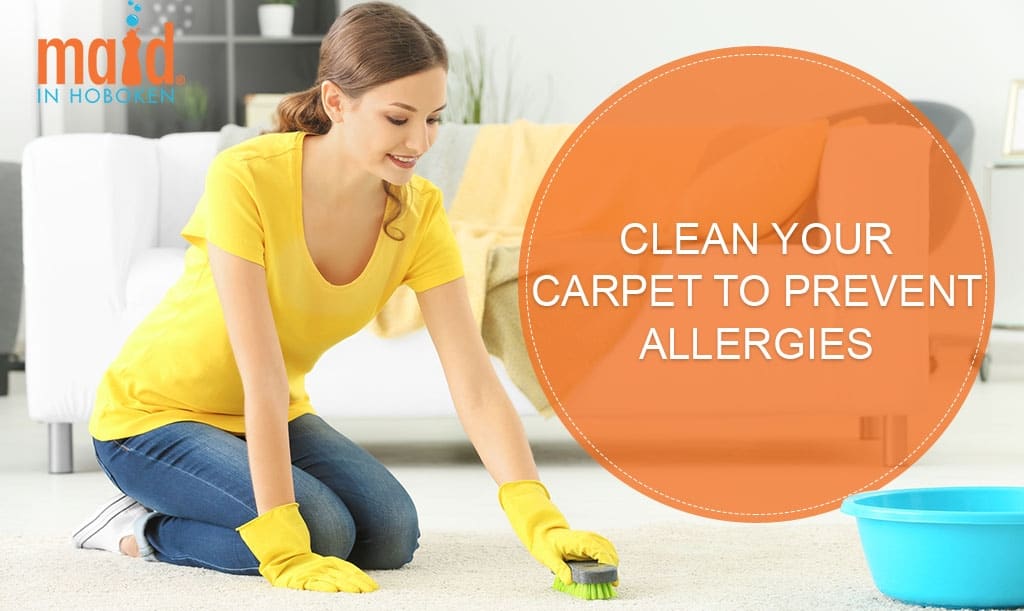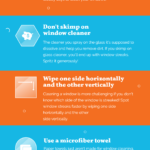It’s a common belief that allergies affect you only when you’re outdoors and the pollen count is excessively high. In reality, that is a false belief but many people think it’s true. Allergy symptoms can be experienced through environmental triggers found inside your home, too. You may not know it, but airborne allergens can be trapped deep in your carpet fibers until they are disturbed by foot traffic then released back into the air you breathe.
So with that thought in mind, you might want to ask the following questions:
- What causes allergies?
- What methods can you take to prevent them?
- How can your professional carpet cleaner help you have a healthier allergy-free home for you and your family?
Don’t worry because you’re in luck! Read on to know more and find out the answers to those questions!
Allergy Symptoms
Allergic reactions usually occur quickly, which is why you can feel totally fine on your way home from school or work then suddenly begin coughing and sneezing within a just a few moments of entering your home. In some cases, they may not occur right away, but rather intensify over a few hours or even days.
Symptoms of common allergic reactions include:
- Coughing
- Sneezing
- Itchy or watery eyes
- Blocked or a runny nose
- Eczema
- Asthma
- Itchy rash and reddened skin
These usually happen when someone comes in contact with airborne allergens but they can also result from physical contact with the allergenic source, such as wool fibers, or new carpeting.
Common Causes of Allergies
These common substances found in your home can cause allergic reactions:
- Mold and mildew
- Dust Mites
- Tree, flower, and grass pollen
- Animal Dander
- Chemicals such as perfumes, candles, and other additives like formaldehyde in carpet fibers.
All these can easily be airborne, drifting up from deep within your carpet fibers with the disturbance of foot traffic. When inhaled, the allergens may trigger mild to severe adverse reactions.
In-Home Allergen Control
These are a few ways to help you control allergens.
Be a fan of regular, thorough vacuuming. During the peak of allergy season and especially if you have pets, it’s mandatory to have your carpets vacuumed every day or several times each week at the very least. Consistent vacuuming can help remove allergens and dust from the deepest parts of the rug and can prevent a potential build-up of allergy triggers.
Mop up food and drink spills immediately when they happen. As soon as any food or drink residue pours on the carpet, molds can begin to form underneath the carpeting and bacteria may proliferate causing unpleasant smells and releasing particle bits into the air that cause allergies. Have spills cleaned up using paper towels to absorb the liquids, and then use a mild solution of soap and warm water to clean the area. Before vacuuming up the pile, allow the carpet to dry thoroughly first.
Make use of doormats. Summer months are the times when plants, trees, and grasses are in full bloom. Thus, plant pollen and spores can be transferred into your home through your clothes and shoes. Place a suitable quality doormat at your front door and request your visitors to wipe their feet before entering thus reducing the pollen and spores that may come into your home.
Control the humidity. A humid atmosphere will stimulate the growth of mildew and mold in your carpets. Have your rooms well ventilated or air-conditioned to reduce moisture. Consider eliminating carpets or rugs from areas that can be steamy, like bathrooms and kitchens.
Request for a Regular Professional Carpet Deep-cleaning. The most effective way to having your carpets be allergen-free is by having them deep-cleaned every year by professionals. They use steam cleaning to eliminate pathogens and make your carpets fluffy, fresh, and looking good. Look them up and get a quote now!





